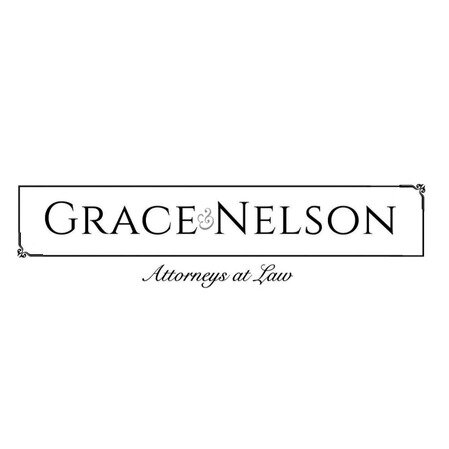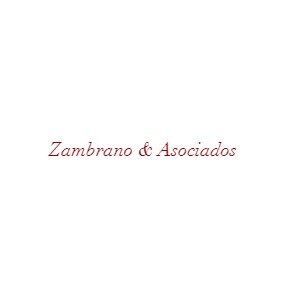Best Mortgage Lawyers in Ecuador
Share your needs with us, get contacted by law firms.
Free. Takes 2 min.
Free Guide to Hiring a Real Estate Lawyer
Or refine your search by selecting a city:
List of the best lawyers in Ecuador
About Mortgage Law in Ecuador
In Ecuador, mortgages play a crucial role in the home buying process and are governed by local laws that ensure both the lender and the borrower have secured interests in real estate transactions. A mortgage in Ecuador is a legal instrument that allows borrowers to use their property as collateral to secure a loan. The terms and conditions of mortgages might vary, including interest rates, repayment periods, and other requirements that borrowers and lenders must adhere to under Ecuadorian law.
Why You May Need a Lawyer
Engaging with a lawyer specialized in mortgage law can be invaluable in various scenarios, including:
- Understanding complex mortgage agreements and clauses to ensure you are fully informed before signing.
- Negotiating better terms or resolving disputes with lenders over repayment conditions.
- Assisting with the legal process of refinancing an existing mortgage or withdrawing equity.
- Providing representation in case of foreclosure or when facing other legal challenges related to property loans.
- Advising on the legal implications of shared ownership or inherited property tied to a mortgage.
Local Laws Overview
Ecuadorian mortgage laws are designed to protect both the lender's and the borrower's rights and are embedded within the Civil Code and real estate regulations. Some key aspects include:
- A mortgage must be registered with the Ecuadorian Property Registry to be enforceable.
- Interest rates on mortgages are regulated by the Central Bank of Ecuador, providing a framework for fair lending practices.
- The law provides detailed procedures for foreclosure, ensuring borrowers are given opportunities to remedy defaults before losing property rights.
- Pre-payment penalties and the rights to early settlement are defined under specific statutes.
- The legal framework supports the rights of foreign nationals to obtain mortgages, provided they adhere to local guidelines.
Frequently Asked Questions
What is the standard interest rate for mortgages in Ecuador?
Interest rates in Ecuador vary depending on the type of loan and financial institution. The Central Bank of Ecuador provides guidance to ensure rates remain fair and competitive.
Can foreigners obtain a mortgage in Ecuador?
Yes, foreigners can secure mortgages through Ecuadorian banks, though they must meet specific requirements set by the financial institution and adhere to local laws.
What happens if I miss a mortgage payment?
Missing a payment can lead to penalties, including late fees and increased interest. Repeated defaults may lead to foreclosure, but lenders often offer grace periods and options before pursuing such actions.
How is a mortgage registered in Ecuador?
Mortgages must be recorded with the Property Registry in Ecuador. This legal process ensures that the mortgage is publicly acknowledged and enforceable.
Can I renegotiate my mortgage terms?
Yes, borrowers can discuss renegotiations with their lenders. A lawyer can assist in structuring terms that may be better suited to your current financial situation.
Are pre-payment penalties common in Ecuador?
Pre-payment penalties may apply depending on your mortgage contract, and it's crucial to review or renegotiate terms with a lawyer if necessary.
What documentation is required to secure a mortgage?
Typically, banks require personal identification, proof of income, credit history, property appraisal, and financial statements. Each lender might have additional requirements.
What is the foreclosure process in Ecuador?
The process is initiated if a borrower fails to meet the mortgage terms. Legal notices are provided, and opportunities to rectify defaults are given before proceedings advance.
Can mortgage terms differ between banks?
Yes, terms can vary significantly between lenders, and it is advisable to consult with multiple banks or financial advisors to find the best deal.
How long can a mortgage term be in Ecuador?
Mortgage terms typically range from 10 to 25 years, depending on the bank and the borrower's agreement. Borrowers should consider the implications of long-term commitments.
Additional Resources
Here are some helpful resources for those seeking more information on mortgages in Ecuador:
- The Central Bank of Ecuador, which provides guidelines on economic and financial policies, including lending rates.
- The Superintendence of Banks, which oversees banking operations and can assist with inquiries or complaints.
- Ecuadorian Property Registry, for the formal registration of mortgages and other property-related documentation.
- Real estate professionals who are familiar with market trends and can offer advice on buying property in Ecuador.
Next Steps
If you require legal assistance with a mortgage in Ecuador, consider the following steps:
- Schedule consultations with legal professionals who specialize in Ecuadorian real estate or mortgage law to gain insights on your specific situation.
- Prepare all necessary documentation related to your mortgage for review by your legal advisor.
- Be clear on your objectives, whether they involve negotiation, disputing terms, or understanding your legal standing.
- Stay informed about local laws and any changes in policies that may impact your mortgage or property rights.
By taking these steps, you will be better equipped to handle your mortgage matters knowledgeably and confidently.
Lawzana helps you find the best lawyers and law firms in Ecuador through a curated and pre-screened list of qualified legal professionals. Our platform offers rankings and detailed profiles of attorneys and law firms, allowing you to compare based on practice areas, including Mortgage, experience, and client feedback.
Each profile includes a description of the firm's areas of practice, client reviews, team members and partners, year of establishment, spoken languages, office locations, contact information, social media presence, and any published articles or resources. Most firms on our platform speak English and are experienced in both local and international legal matters.
Get a quote from top-rated law firms in Ecuador — quickly, securely, and without unnecessary hassle.
Disclaimer:
The information provided on this page is for general informational purposes only and does not constitute legal advice. While we strive to ensure the accuracy and relevance of the content, legal information may change over time, and interpretations of the law can vary. You should always consult with a qualified legal professional for advice specific to your situation.
We disclaim all liability for actions taken or not taken based on the content of this page. If you believe any information is incorrect or outdated, please contact us, and we will review and update it where appropriate.
Browse mortgage law firms by city in Ecuador
Refine your search by selecting a city.














